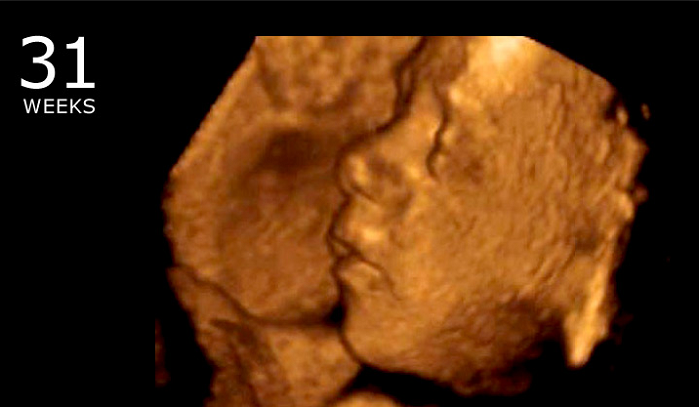Montana House lawmakers gave their initial approval of a bill Wednesday that would prohibit abortions after 20 weeks on pain-capable unborn babies.
State Senate Bill 329 passed in a 60-40 vote, and a final vote on the measure is scheduled for Thursday, according to the UM News Service. The bill, the Pain-Capable Unborn Child Protection Act, would prohibit abortions after 20 weeks when strong scientific evidence indicates unborn babies are capable of feeling pain.
One pro-life lawmaker shared his personal story on the House floor before the vote.
According to the report:
Rep. Dennis Lenz, R-Billings, supported the bill and said he takes great offense when someone says men don’t understand abortion.
“As someone who was born to an unwed mother – 11 years before Roe v. Wade – I know where I would be,” Lenz said.
Lenz said this piece of legislation is important to protect the lives of babies. Rep. Carl Glimm, R-Kila, said this is exactly why government is in place.
Click here to sign up for pro-life news alerts from LifeNews.com
“I think that government is here to take care of those who are the most vulnerable, and I think that these babies are just that,” Glimm said.
Glimm said that he could contend that 50 percent of those babies would be women, and so, by nature, the legislation cares about women.
Pro-abortion lawmakers criticized the bill as government overreach into women’s lives and doctor’s offices.
Currently, 16 states prohibit abortions after 20 weeks, based on strong scientific evidence that unborn babies at this stage can feel pain, as well as advancing medical technology that is pushing back the point of viability. Other states also are considering similar bills this spring.
Together, these laws potentially are saving thousands of babies from painful, late-term abortions. There were at least 5,770 late-term abortions at or after 21 weeks of pregnancy in 2013 in the U.S., according to the Centers for Disease Control. Another approximate 8,150 abortions took place between 18 weeks and 20 weeks, the CDC reports.
Though abortion advocates deny the science of fetal pain, researchers have fully established fetal pain at 20 weeks or earlier.
Dr. Steven Zielinski, an internal medicine physician from Oregon, is one of the leading researchers into it. He first published reports in the 1980s to validate research showing evidence for unborn pain.
At 20 weeks, the unborn child has all the parts in place – the pain receptors, spinal cord, nerve tracts, and thalamus – needed for transmitting and feeling pain. The unborn child responds to touch as early as week 6; and by week 18, pain receptors have appeared throughout the child’s body.
“The thalamus, which is the center of pain consciousness in the brain, develops during weeks 8 through 16, and the nerve tracts connecting the spinal cord and thalamus are themselves in place by week 20,” said Randy O’Bannon of National Right to Life. “Like infants, the unborn child cannot speak and describe his or her pain experience, but there are the usual physiological indicators that indicate pain awareness.”
“As early as 18 weeks, an unborn child injected with a needle releases stress hormones, just as adults do when experiencing pain. Hormone levels in those babies decrease when pain-relievers are supplied,” he added. “Studies indicate that anencephalic infants, whose cortex is severely reduced if not altogether absent, experience pain as long as other neurological structures are functioning.”
Dr. Colleen A. Malloy, a professor of neonatology at Northwestern University’s Feinberg School of Medicine, told a U.S. Senate committee last year that “anesthesiologists, and surgeons use pain medication” for unborn babies at the 20 week stage, “because it’s supported by the literature completely.”
“I could never imagine subjecting my tiny patients to a horrific procedure such as those that involve limb detachment or cardiac injection,” Malloy said.








